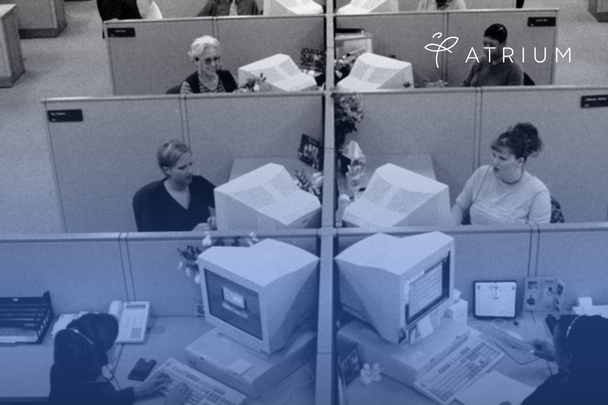Updated 5.20.19
Tell me about yourself…You’re already cringing aren’t you?
While interview processes and formats may have changed over time, one thing has remained constant. “Tell me about yourself” is still the opening question of choice for interviewers everywhere. It’s also still one of the most anxiety provoking questions for candidates. In fact, during our webinars focused on other interview advice, someone always asks us to address how to answer this much maligned interview question.
The truth of the matter is that this is your time to shine. You’re in complete control of your answer here. This question presents an opportunity for you to show off your true potential. So let’s put our anxiety around the
“tell me about yourself question” aside and start figuring out the best way to answer it.
The most important thing to understand is that there should be some artistry in your answer. Georges Seurat made pointillism famous. He composed gorgeous paintings with thousands of tiny dots. Put together in just the right way, these dots ultimately created beautiful works of art that you could easily get lost in. That is exactly what you do NOT want to do. Instead, think of yourself as Picasso. His portraits aimed to show all sides of a person in one, two-dimensional image. He took what he saw was essential from the front, back and side views of his subject and presented one image that instantly grabs you. Your answer should do the same.
What I mean is, don’t make your interviewer connect the dots. Provide a structured answer that does it for them using our three step formula for answering the “tell me about yourself“ question. These are only examples to get you started on how best to formulate your own answers. You will certainly need to add some detail and color. Use these steps as guideposts to follow, but it’s up to you to make it your own.
1. Opening statement:
How you start will determine the way you end up telling your story. You do of course have options.
- Give the overview statement: I have over ten years of experience in entertainment marketing.
- Start at the beginning: I started my marketing career as a marketing coordinator at a digital agency.
- Start with humor: My freshman year of college I planned to major in economics, until I took my first econ course. I quickly changed my mind. It’s a bit ironic that I got my first marketing job at a small accounting firm. I learned so much, but I knew I wanted to work in an industry that I had a real passion for.
2. The Roadmap:
The meat of your story should offer an understanding of the roadmap you followed in your career. Interesting twists and turns can also be addressed. The main point is to show the interviewer the logical thought process behind the career decisions you made.
- The Direct Path:
Being part of a marketing team for an entertainment company was always my long-term plan. I started in small media firms and really worked my way up to companies like Showtime. Both small and large environments offered different challenges. While at X company I really learned how to stretch small budgets and work under tight deadlines. One of my most successful projects was (insert experience here). When I finally became part of a larger company, I learned a lot more about analytics and got to be involved in strategic marketing planning and I found that fascinating.
- Meanderer:
I’ve had a lot of interesting turns in my career and the exposure to various industries and roles has really been an asset. I’ve really studied the commonality between the positions I’ve held and the common thread and my success in each role comes down to project management. That’s what lead me to pursue my PMP certification.
- Somewhat linear:
Early in my career, I developed great marketing experience with digital agencies. I learned great skills (insert skills), but after several years, I became very curious about what it would be like to work internally for one client and to give that client all my attention and focus. That’s how I eneded up at XYZ company. It’s been a tremendous change. I was able to enhance my skills in (insert skills) and I finally got to take on new responsibilities (name responsibilities). I also conducted the first…(insert initiatives or achievements).
3. Your destination – why you’re interviewing for the job:
Your conclusion should make it clear to the interviewer why and how you’ve ended up in the chair across from them interviewing for this position.
- Looking for growth:
Now, I’ve come to a place where I’m ready to take on more responsibility and lead a team of my own so when I saw your job posting it just sounded like the perfect fit.
- Looking for change of environment:
Agency life has been really exciting. I’ve had a great career so far but I’m really looking to move internally and give 100% of my attention to one client and one client only. XYZ company has always been on the top of my list since I saw the marketing around X product launch so when I saw your job posting I had to apply.
When we put it all together it, we seen a broad portrait of the progression of one’s professional life. We understand the beginning, the middle and the current end point at which the candidate finds him/herself and what it is they are looking for in their next step. When you present this information to an interviewer at the beginning of your meeting, they become more confident about you being a strong and viable candidate. As a result, your interview starts off on a strong note and you’re able to keep steering your story in the right direction.









